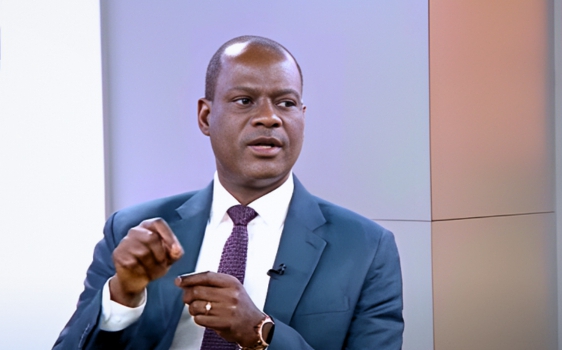The Federal Government of Nigeria is eyeing a single-digit tax regime to reduce the burden of multiple taxation on Nigerians.
Chairman Presidential Committee on Fiscal and Tax Reforms, Taiwo Oyedele revealed this in an interview with newsmen.
Oloyede explained that all taxes would be cut down to single digits when the ongoing reforms are concluded.
A single-digit tax system allows less than 10 taxes to be paid by citizens or businesses within a period of time.
He said this in an interview themed, ‘Tax Reforms: Why states should not collect VAT,’ noting that his committee has put a framework in place to enhance cooperation between tax authorities and states in terms of data, tax intelligence and capacity building.
“Our hope is when we are done with our reforms, all the taxes will be down to single digit,” Oyedele said.
He said, “We want to be able to let the authorities trained on tax matters collect taxes while others focus on primary mandates and watch the economy grow in a way that benefits everyone,” Oyedele stated.
“The Nigerian tax administration bill is our term to try and put registration of taxpayers, filing of returns, assessment, doing tax audit, and using technology for tax administration. We are engaging with legislators and we believe that Nigerian lawmakers have concerns and we want to summarize the bill for them,” Oyedele further said.
He noted that the Nigerian tax system is one of the most backward in the world, describing the situation as ‘embarrassing.’
“We are in 2024, and anything that will stop the reforms of Nigeria’s tax system will be really sad and I think we can work out the differences for the process to continue and for the bills to be enacted.”
On his X account on Monday, Oyedele also said the federal government will reduce the overall tax burden on Nigerians while still ensuring that enough revenue is generated in the country.
“The plan is to reduce the overall tax burden, not increase it. By simplifying the tax system, harmonizing taxes and addressing impediments to investments, the reforms will boost economic activities and therefore enhance revenue generation for all tiers of government,” Oyedele said.
He outlined strategies the government will be implementing to ensure that tax revenue increases without raising the tax burden. Such strategies include: the removal of disincentives to business formalization, use of technology, data for intelligence, and tax simplification.
“This will ensure that we can raise tax revenue without raising tax burden, through various strategies including removal of disincentives to business formalization, use of technology and data for intelligence, tax simplification and enhanced administrative capacity. Beyond raising revenue, curbing tax evasion also ensures that there is a level playing field for all rather than implicitly penalizing compliant taxpayers and rewarding evaders,” he said.
He noted that the reforms by the government will benefit small and large businesses as there will be a harmonized single levy at a reduced rate.
“Some of the proposals include reduction of corporate income tax rate from 30 per cent to 25 per cent over the next 2 years and elimination of earmarked taxes on companies to be replaced with a harmonized single levy at a reduced rate,” he said.
The development comes following public outcries over multiple and increasing taxation by the President Tinubu’s administration.
Channels Television











